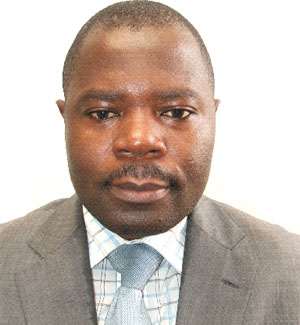
Nana Yaw Osei, ACCOG CEO
The cost of In-Vitro Fertilisation (IVF) popularly referred to as 'Artificial Insemination' in Ghana has been significantly dropped from GH¢ 9,000 to GH¢500.
According to the Association of Childless Couples of Ghana (ACCOG), a non-governmental organisation (NGO) established in July 2012 to assist childless couples to have their own children, 'The cost involved in going through IVF treatment is very high across the world. In the UK, it costs around £5,000 per cycle. In Ghana, the average cost of an IVF, after the necessary tests have been conducted on both the man and the woman is about GH¢9,000.00 per cycle. This prevents a lot of people from benefiting from the treatment,' explained Nana Yaw Osei, a fertility counsellor and the Chief Executive of ACCOG.
'The good news for Ghanaians expecting to have their own children is that the cost of IVF could soon be cut dramatically from thousands of cedis to around GH¢500.00 ($200.00) to start a “new era” in IVF,' he proclaimed.
Meanwhile, ACCOG in collaboration with The Church of Pentecost would stage the first ever National Conference on Infertility/Childlessness on Saturday, March 15, 2014. At least 4,000 participants are expected from within and outside the country.
One of the expected resource persons for the conference is Prof Dr Willem Ombelet, a Belgian lead researcher responsible for developing the low cost IVF method called 'The Walking Egg (TWE)' which replaces expensive medical equipment with “kitchen cupboard” ingredients.
Other resource persons for the conference include Madam Sherry Ayitey, Minister for Health, Mr Sampson Nii Trebi, the Director of Department of Social Welfare, Apostle Dr Opoku Onyinah, the Chairman of The Church of Pentecost, Sheik Saeed Abdul-Muumin, an Islamic Scholar and Director General of Global Institute of Islamic Banking, Insurance and Consultancy (GIIBIC) and Prof A. T. Odoi, an Obstetrician Gynaecologist with the Komfo Anokye Teaching Hospital.
DAILY GUIDE gathered that the method which was launched in London in July last year has a success rate similar to conventional IVF. The results, presented to the European Society of Human Reproduction and Embryology Conference, showed a pregnancy rate of 30 percent approximately the same as IVF which has a success rate of 33 percent.
'The only disadvantage about the technique is that it cannot completely replace conventional IVF. It would not help men with severe infertility who requires more advanced treatment in which the sperm is injected into the egg, known as intra-cytoplasmic sperm injection,' Nana Yaw Osei warned.
When the TWE centre is opened in Ghana, it would be the first in Africa and also the first country apart from the country of origin, Belgium.
IVF is one of the Assisted Reproductive Technologies (ARTs) that are used by many these days to conceive and subsequently have children through the method.
Research indicates that for majority of women who have difficulty conceiving, it is as a result of blockages in the fallopian tubes where conception takes place within the reproductive system. IVF is, therefore, to circumvent the tubes by fertilizing the eggs of a woman with a man's sperm outside the body system and transferring the resultant embryo (s) into the woman's uterus (womb).
Since the first IVF child was born in the year 1978, an estimate of over 5,000,000 children have been born through the method across the world.
By: Raphael Ofori-Adeniran




 We’ll protect state wealth from opaque deals – Prof Jane Naana
We’ll protect state wealth from opaque deals – Prof Jane Naana
 Mauritania president says running for second term in June polls
Mauritania president says running for second term in June polls
 I won't ever say I was a mere driver’s mate' — Prof. Opoku-Agyemang
I won't ever say I was a mere driver’s mate' — Prof. Opoku-Agyemang
 2024 polls: 'EC struggling to defend credibility'— Prof. Opoku-Agyemang
2024 polls: 'EC struggling to defend credibility'— Prof. Opoku-Agyemang
 Akufo-Addo gov't's 'greed, unbridled arrogance, unrestrained impunity, sheer dis...
Akufo-Addo gov't's 'greed, unbridled arrogance, unrestrained impunity, sheer dis...
 Election 2024: Ghana needs an urgent reset, a leadership that is inspiring – Ma...
Election 2024: Ghana needs an urgent reset, a leadership that is inspiring – Ma...
 Partner NDC to rollout a future of limitless prospects – Prof Jane Naana Opoku-A...
Partner NDC to rollout a future of limitless prospects – Prof Jane Naana Opoku-A...
 NPP will remain in gov’t till Jesus comes — Diana Asamoah
NPP will remain in gov’t till Jesus comes — Diana Asamoah
 Sunyani Technical University demands apology from former SRC president over sex-...
Sunyani Technical University demands apology from former SRC president over sex-...
 'Dumsor' was resolved by Mahama but ‘incompetent' Akufo-Addo has destroyed the g...
'Dumsor' was resolved by Mahama but ‘incompetent' Akufo-Addo has destroyed the g...
